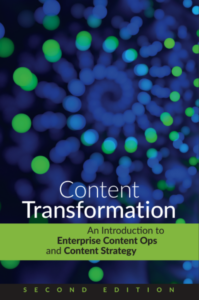“You don’t own me—or your content!”: the motivated consumer’s mantra
I love Downton Abbey. I love my Honda Fit.
And I will consume content about those things—even when their creators would prefer I not.
Today’s digital world means that information is global. Sure, ITV can release Downton Abbey in the UK during the last quarter of a year, and PBS can rebroadcast it in the US just a few weeks later. But if ITV and PBS think they can keep the show from American audiences during the initial UK broadcasts, they are very mistaken.
I saw information about the fourth season of Downton Abbey in my Facebook news feed while it was airing in the UK, and headlines about the show from UK-based sites made their way into my RSS feeds. Also, I’ve heard it’s not too hard to find the latest episodes on various not-entirely-legal file sharing sites. Die-hard fans in the US aren’t going to let intellectual property concerns block their immediate access to the Dowager Countess’s sharp tongue and poor Edith‘s latest jilting. Many folks over here watch the show pretty much in real-time as it airs in the UK, even though I’m sure PBS would strongly prefer that Americans watch the official US broadcasts—which seem to correspond with pledge drive season (ahem).
Meanwhile, in Japan, Honda released the third generation of its compact hatchback, the Fit (known as the Jazz in some markets), in September. That new model won’t be available in the US until later this year, and Honda just launched a site to give US residents a glimpse of the new model. If I kindly give Honda my email address and phone number, they will send me more information on the new model. Oh really, Honda?
I don’t need to cough up my personal information to see photos and specs for the new Fit. I can check out non-Honda sites and blogs (such as this post from July 2013) to get information on the car and what I can expect in the version released in the US.
As content creators and managers, we have to realize that motivated consumers are going to ferret out information through unofficial (and even legally dubious) channels—particularly in situations where releases are staggered across different geographical markets. While there are legitimate reasons for releasing products at different times across world markets (and localization lag time is not a good reason, BTW), our product and content strategies must account for those who really want information—and don’t give one whit if it comes first from an unofficial source.
You cannot control the flow of content once it’s out there or pretend like it doesn’t exist because you didn’t release it. Copyright issues aside, you can’t hold on to antiquated notions about “owning” information in the Internet age. Consumers will speed right by you if you’re not giving them the information they want when they want it—and they may never turn back to your official content again.
P.S. My apologies to Lesley Gore for appropriating the title of her hit song:



Shane Taylor
Nicely articulated. I’ve had a few discussions lately with stakeholders on two unrelated projects who are reticent to make content available that our users have demonstrated they want — by searches, support calls, and help feedback. I don’t understand their reservations, and their arguments for not making the information available are vague and seem based on the fact that the information changes. Good to have something else to point to besides my pleas that a) all help information changes (or is obviated) sooner or later, and b) users are looking for this information, and support calls are more expensive than my salary.